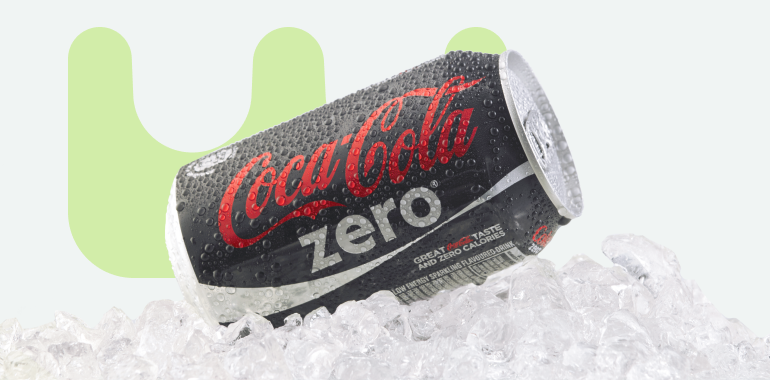
Effective Ways to Handle Carnivore Diet Constipation in 2025
The carnivore diet, characterized by an exclusive consumption of animal products, has garnered attention for its unique approach to nutrition. However, one common concern among those following this meat-based regimen is constipation. This article explores effective strategies to alleviate constipation on the carnivore diet, helping individuals maintain digestive health while reaping the benefits of their high-protein, low-carb lifestyle.
Constipation on the carnivore diet can stem from several factors, including low fiber intake and dehydration. Understanding the underlying causes and implementing practical solutions is crucial for anyone looking to enjoy the advantages of a meat-based diet without the discomfort of digestive issues. Throughout this article, we will cover various aspects such as hydration strategies, meal planning tips, and potential natural remedies for alleviating constipation. By gaining insights into these methods, readers can improve their digestive processes and enhance overall gut health.
Key takeaways include hydration importance, appropriate electrolyte management, and alternative remedies tailored to the unique requirements of a meat-centric diet. Let's delve into these strategies and empower your journey on the carnivore diet.
Understanding Carnivore Diet Constipation
Before we examine specific remedies, it’s essential to understand why constipation may occur on the carnivore diet. Many individuals transitioning to this high-fat, low-carb diet find themselves facing digestive challenges often linked to reduced fiber intake. Unlike traditional diets rich in fruits, vegetables, and grains, the carnivore diet inherently lacks dietary fiber, which plays a crucial role in promoting regular bowel movements.
Additionally, while the body can adapt to digesting high protein foods, some may experience symptoms related to meat intolerance, exacerbating constipation issues. Furthermore, the body's transition to ketosis can influence digestion due to changes in gut microbiome composition and the absence of fibrous foods, leading to gastrointestinal discomfort.
Recognizing these factors helps individuals anticipate potential pitfalls. With this foundation laid, we can now explore practical measures to alleviate constipation while adhering to the carnivore diet.
Hydration Strategies for Alleviating Constipation
Dehydration is a significant contributor to constipation, especially in those consuming a high-protein diet like the carnivore diet. Animal foods can lead to increased protein breakdown, which means the body requires more water to process these nutrients adequately. Hence, increasing hydration is vital.
To improve hydration on a carnivore diet, consider the following strategies:
- Drink Plenty of Water: Aim for at least 8 glasses of water daily, adjusting according to activity level and climate.
- Include Electrolyte Supplements: Adding electrolytes can help maintain hydration levels and support digestive health. Sodium and potassium are particularly important on a high-protein diet.
- Consume Bone Broth: Not only does bone broth provide hydration, but it also contains beneficial nutrients that support gut health.
By prioritizing fluid intake, individuals on the carnivore diet can combat dehydration and its associated digestive issues, including constipation.
Incorporating Natural Remedies for Constipation
Natural remedies can be beneficial for alleviating constipation related to the carnivore diet. A few effective solutions include:
- Chia Seeds or Flaxseed Powder: Although these are technically plant-based, they can be useful for their high fiber content when used in moderation.
- Probiotics: Introducing probiotics can help balance gut flora and enhance digestion, aiding in regularity.
- Digestive Enzymes: Supplementing with digestive enzymes may help break down protein more efficiently, potentially mitigating constipation.
These remedies can be particularly useful for individuals who struggle with gut health on the carnivore diet, offering gentle support without straying from the meat-centric approach.
Meal Planning Tips to Enhance Digestion
Effective meal planning can play a significant role in managing constipation while following the carnivore diet. Here are some practical tips to enhance digestion:
- Vary Protein Sources: Include different animal proteins such as beef, pork, lamb, and chicken. This variety helps the digestive system adapt better.
- Focus on High-Fat Cuts: Incorporating high-fat meats can aid digestion by providing necessary fats for nutrient absorption.
- Prioritize Organ Meats: Foods like liver and heart are nutrient-dense and can support digestive health.
Additionally, consider smaller, more frequent meals to avoid overwhelming the digestive system and promote regularity.
Managing Bloating and Gas on the Carnivore Diet
Aside from constipation, bloating and gas are other uncomfortable symptoms many encounter on a carnivore diet. High protein intake can lead to the production of gas during digestion, particularly for individuals who may not be accustomed to consuming such levels of meat. Addressing these symptoms requires a proactive approach.
To alleviate carnivore bloating, individuals can:
- Chew Food Thoroughly: Taking time to chew properly helps initiate the digestive process and can reduce gas formation.
- Slowly Introduce New Foods: When transitioning to a carnivore diet, introduce new meats gradually to allow the digestive system to adapt.
- Incorporate Fermented Foods: Adding fermented animal-based products, such as kefir or fermented cheeses, can help establish a healthier gut flora balance.
Employing these strategies can significantly improve gut health and lessen the likelihood of bloating associated with high protein consumption.
Supplements for Enhanced Digestive Health
The right supplements can support digestive health on the carnivore diet, reducing constipation and other related issues. Key supplements to consider include:
- Electrolyte Supplements: As previously mentioned, replenishing electrolytes can aid both hydration and gut health.
- Probiotics: Daily probiotics can maintain gut balance and improve digestion.
- Digestive Enzymes: These can boost nutrient absorption and help breakdown proteins more effectively.
Before starting new supplements, it's wise to consult with a healthcare professional to ensure they align with dietary needs and health goals.
Recognizing and Addressing Meat Intolerance Symptoms
Understanding meat intolerance is vital for maintaining digestive wellness on the carnivore diet. Some individuals may experience symptoms such as bloating, gas, and constipation due to an inability to effectively digest certain meats. If experiencing these symptoms, it’s essential to evaluate which meats are causing discomfort.
Common symptoms of meat intolerance may include:
- Unusual digestive upset after eating specific meats
- Increased bowel irregularities
- Persistent or severe bloating and gas
To manage these symptoms, individuals may need to experiment with different types of meat, start with easily digestible options like poultry, and gradually introduce red meats. This approach allows the gastrointestinal tract to adapt effectively.
Q&A Section on Carnivore Diet Constipation
What is the main cause of constipation on the carnivore diet?
The primary cause of constipation on the carnivore diet stems from low fiber intake and dehydration. With the absence of fruits and vegetables, dietary fiber—which aids in bowel regularity—is significantly reduced.
How can I increase fiber intake on a carnivore diet?
While fiber is naturally absent, some may consider minimal additions like chia seeds or flaxseeds, used sparingly. Although technically not animal products, they offer a good source of soluble fiber.
What are some effective meals for promoting digestive health on the carnivore diet?
Meals focusing on high-fat cuts of meat, organ meats, and incorporating hydration through broths can support digestive health. Examples include fatty ribeye steaks, liver snacks, and bone broth soups.
What can I do if I experience gas or bloating while on the carnivore diet?
Chewing food thoroughly, gradually introducing new meats, and incorporating fermented dairy products can help alleviate gas and bloating symptoms.
Should I consider supplements while on the carnivore diet?
Yes, supplements such as electrolytes, probiotics, and digestive enzymes can greatly benefit those on a carnivore diet, helping to maintain gut balance and alleviate constipation.

